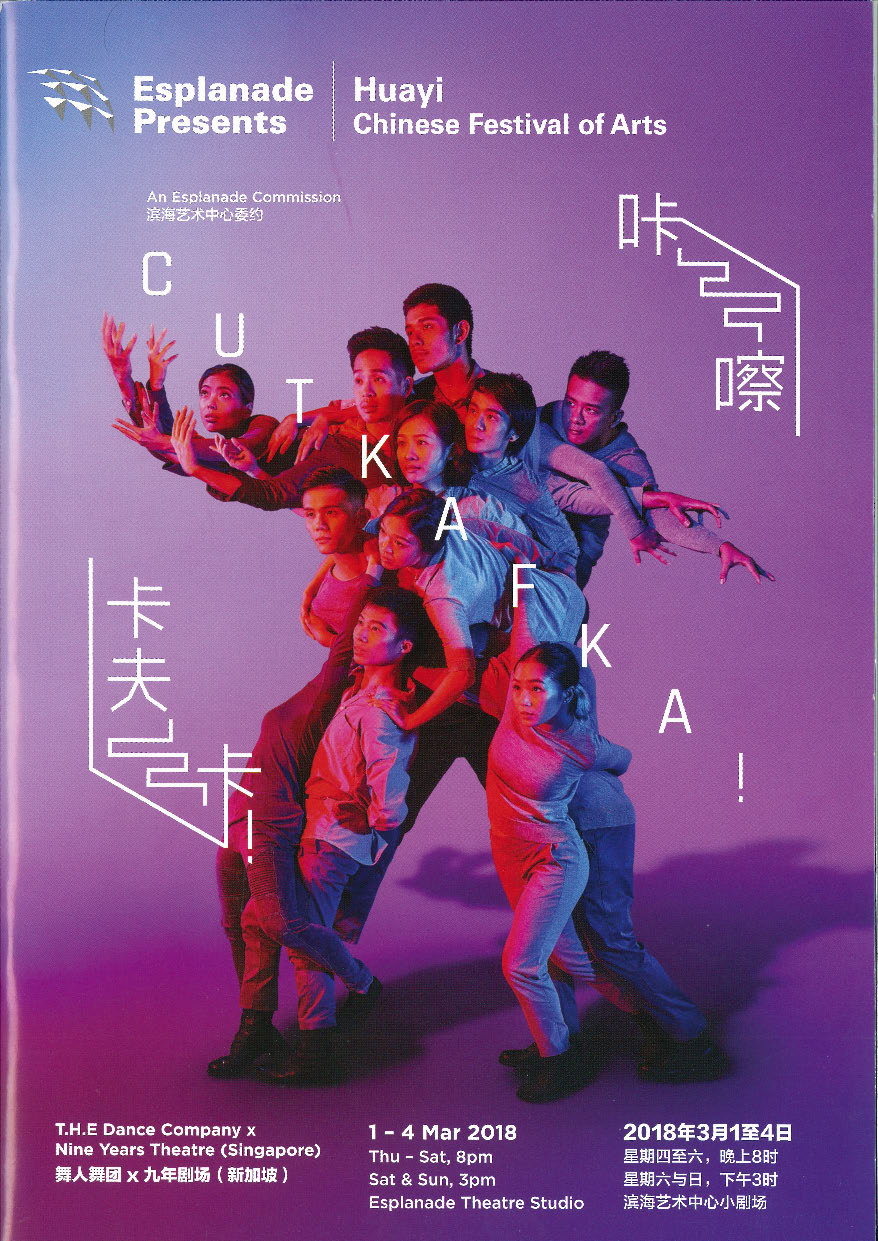Cut Kafka! is a collaborative work between T.H.E Dance Company (T.H.E) and Nine Years Theatre (NYT), inspired by Franz Kafka’s life and works. The early drafts of the script were inspired by a number of different texts by or about Kafka—The Metamorphosis, The Trial, The Castle, The Hunger Artist, and personal letters addressed to his father—which were researched by writer and performer Neo Hai Bin. These texts were researched based on the initial ideas and framework laid down by co-directors/choreographers Kuik Swee Boon and Nelson Chia. However, the final work is not intended to be biographical or a presentation of his texts. Instead, what we have created is a contemporary response to the themes in Kafka’s works.
The world that we come up with on stage is a space that can be imagined as a writer’s mind. The writer may, or may not, be Franz Kafka, various themes are dissected and examined in this mind space, and what unfolds can be described as us dreaming about the writer, as well as the writer writing about us.
Kafka’s works are generally associated with a bleak sense of humour. We decided to move in the opposite direction and explore our own hypothesis: what if the writer (in our script) actually intended for The Metamorphosis to be a utopic story with a happy ending? But for some reason, his characters keep disobeying their creator and begin to morph into beetle-like creatures.
In the process, we began to freely conjure multiple interpretations of transformation: the iconic beetle appears, but in a part-human, part-creature shape. A man decides to learn the technique of transformation and is struck by an epiphany when he witnesses a cocoon becoming a butterfly. The most famous mythological shapeshifter of Chinese literature Sun Wukong (the Monkey King) pops up in one scene. Or how a double entendre in one of the lines that equates metamorphosis (变形) to perversion (变态) carries a darker sociological subtext. In the end, we question who or what are the forces behind our decisions to change or not change.
Kafka’s themes are so universal that the adjective “Kafkaesque” has been coined to describe the feelings inherent in his writings. In Singapore, we have created a social system that is highly efficient and practical, but at the same time, people may feel trapped in an endless cycle of productivity with no end in sight. We say that this phenomenon is fairly Kafkaesque. Furthermore, one of the defining traits of being Kafkaesque is a nightmarish feeling—the nightmare of not being able to express oneself in our own ways. Does that not strike a chord amongst us Singaporeans?
